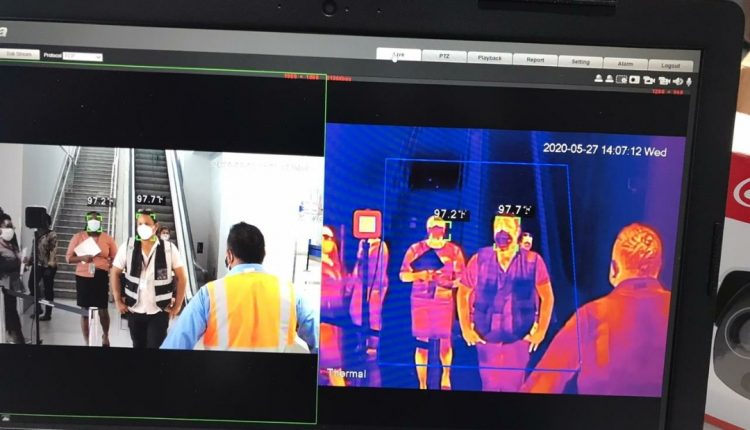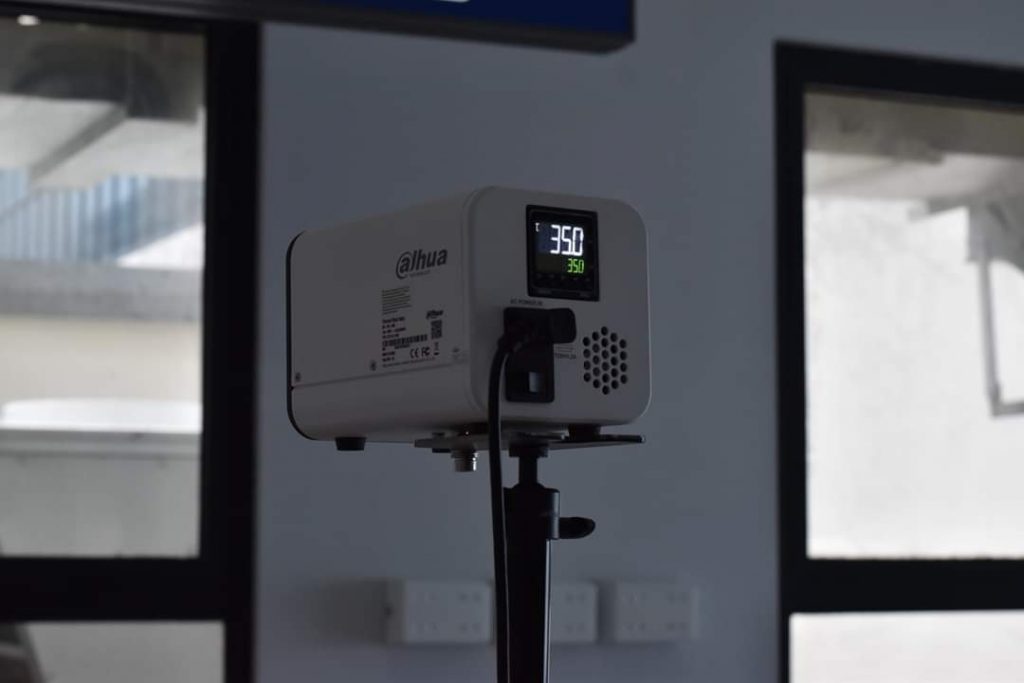E-Networks donates body temperature detection camera system to CJIA

E-Networks donates body temperature detection camera system to CJIA
See full statement below from E-Networks Inc.:
In support of Guyana’s efforts to combat the spread of COVID-19, E-Networks Inc. – Guyana’s leading TV, Internet and ICT provider – has donated a thermal camera system to the Cheddi Jagan International Airport (CJIA).
With temperature checks forming an integral part of containing the spread of COVID-19, the need for a quick, efficient and less invasive way of screening passengers is critical. In recognition of this, E-Networks made a donation to Guyana’s largest international airport of the industry’s latest thermal camera system, manufactured by Dahua Technology.
This system is capable of real-time body temperature measurements with medical-grade accuracy and issues an alert when it detects someone with a fever. With built-in AI algorithms, it can measure multiple persons from up to 3-meter distance, without the need to touch a thermometer to each traveler’s forehead, enabling fast and no-contact access, and addressing the concerns of Guyanese in admitting international travelers to the country during the pandemic.
Valued at G$3.5M, the system is already in use and was first successfully tested with the arrival of the first repatriation flight from Miami, USA on June 6, 2020. CEO of CJIA, Mr. Ramesh Ghir commented that the donation was timely, and they were happy to partner with E-Networks to test this new technology that aligns with the airport’s plans for COVID-19 readiness as Guyana begins to ease restrictions and reopen its international borders.
This donation was made possible by E-Networks’ partnership with Dahua Technology, the world’s second-largest camera manufacturer, and a leading global provider of video-centric intelligent IoT solutions and services. The donation also forms part of E-Networks’ Corporate Social Responsibility (CSR) programme, which is now focused on leveraging technology and connectivity to enable Guyanese consumers, businesses and organisations become accustomed to the “new normal” of living and working in the age of COVID-19.
-Ends-



